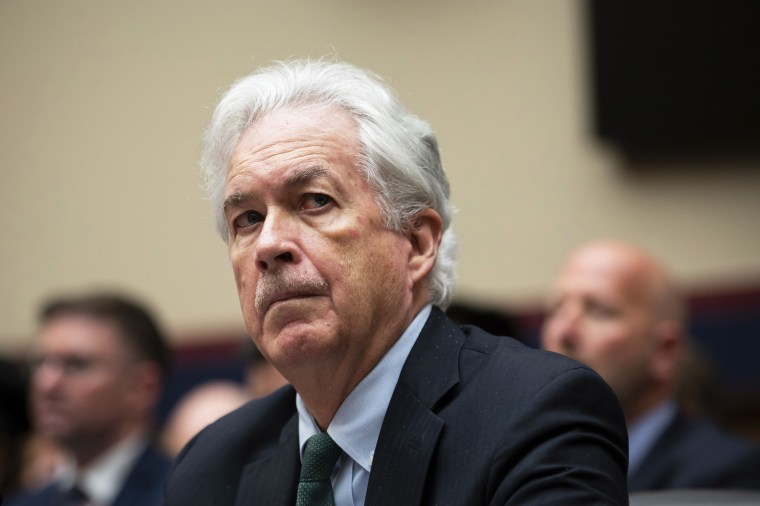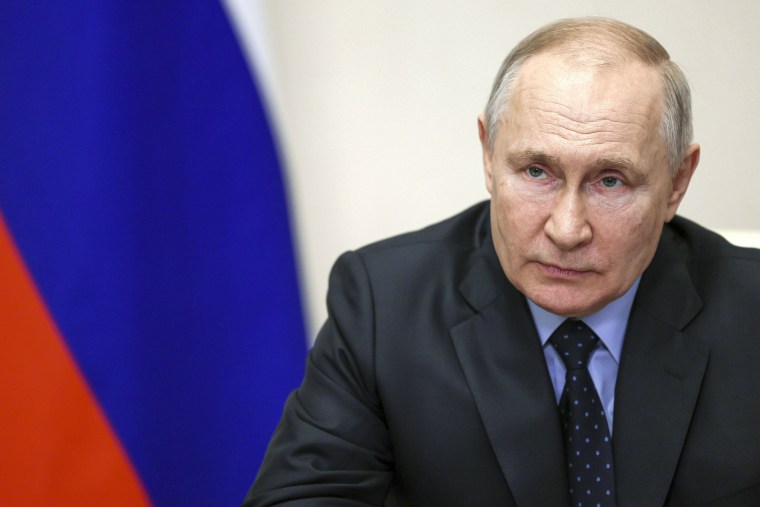Last month’s mutiny in Russia damaged President Vladimir Putin’s carefully crafted image as a strong ruler, and he is likely to seek retribution against the man who led the rebellion, CIA Director William Burns said Thursday.
The uprising by Yevgeny Prigozhin’s Wagner Group paramilitaries “exposed significant weaknesses in the system Putin has built,” with the country’s security services, military and decision-makers appearing to have been “adrift” for 36 hours, Burns said at the Aspen Security Forum in Colorado.
The mutiny on June 23-24 threatened the picture Putin has sought to paint of himself as the “arbiter of order” in Russia, Burns said. Instead, for a brief period, Wagner forces were advancing toward Moscow without resistance.
For Russians accustomed to seeing Putin in control, “the question was ‘Does the emperor have no clothes?’ or at least ‘Why is it taking him so long for him to get dressed?’” Burns said.
For Moscow’s elite, the episode resurrected questions that have emerged since the invasion of Ukraine “about Putin’s judgment, about his relative detachment from events and about his indecisiveness.”
“The most remarkable thing that happened that day was that Putin was forced to cut a deal with his former caterer,” an allusion to Prigozhin's earlier career as a caterer for public school and Kremlin events, said Burns, referring to the ambiguous arrangement in which Wagner forces were supposed to be absorbed into the Russian military.
The rebellion represented “the most direct assault on the Russian state in Vladimir Putin’s 23 years in power,” Burns added.
Now, Putin is waiting, “trying to buy time as he considers what to do with Wagner and what to do with Prigozhin himself. Putin hates, in my experience, any way the image that he’s overreacting,” Burns said. “He’s trying to settle things.”
Putin most likely will want to gradually sideline Prigozhin but retain the Wagner outfit, as he sees the paramilitaries as a useful tool, including in Africa and the Middle East, Burns said.
“What he’s going to try to do is separate Prigozhin and undercut him but preserve what’s of value to him," he said.
But as “the ultimate apostle of payback,” Putin will almost certainly go after Prigozhin when the time is ripe, said Burns, a former career diplomat and ambassador to Russia.
“I would be surprised if Prigozhin escapes further retribution for this,” said Burns, adding, “If I were Prigozhin I wouldn’t fire my food taster.”

As for Prigozhin’s whereabouts, he appears to be in Belarus after having spent time in Russia, Burns said.
“He’s moved around a bit. I think he’s been in Minsk lately. I’m not sure he has any plans to retire in the suburbs of Minsk. But he spent time in Russia, as well,” Burns said.
During the mutiny, Prigozhin posted a video blasting the top military brass and the Kremlin’s rationale for the invasion. Burns called it “the most scathing indictment of Putin’s rationale for war, of the conduct for war, of the corruption at the core of Putin’s regime that I’ve heard from a Russian or a non-Russian.”
He said there was a link between the battleground in Ukraine and events in Russia. If Ukrainians advance on the battlefield, “I think what that’s going to do is cause more and more Russians in the elite and outside the elite to pay attention to Prigozhin’s critique of the war, as well.”
Asked about the risk that Putin would resort to nuclear weapons in the war, he said that the Russian regime’s rhetoric was concerning but that there was no sign Moscow was moving to use its arsenal.
“The nuclear saber-rattling that Putin and those around him have been doing has been deeply irresponsible. It’s not something we can take lightly,” Burns said. “We obviously monitor things very carefully, but we do not see concrete immediate preparations for use of nuclear weapons.”
